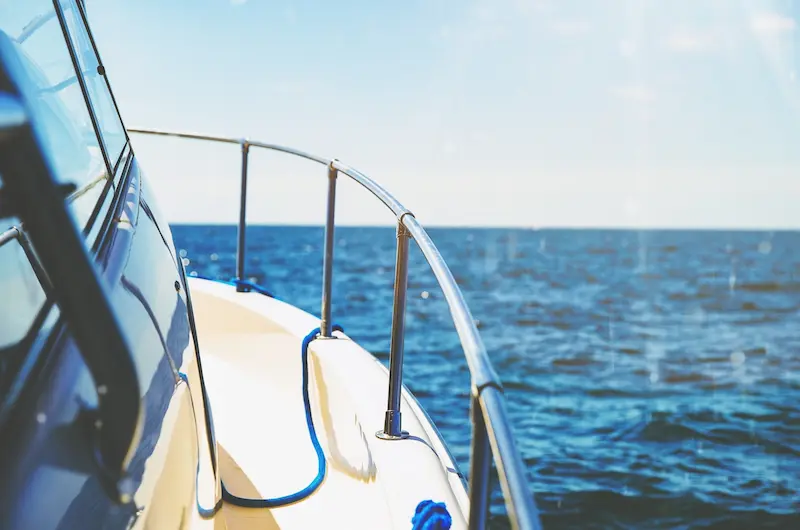Table of Contents
Purchasing your first boat is an exciting step, promising endless adventures on the water and new memories. But before diving into boat ownership, several practical considerations can help you make a choice that aligns with your needs, lifestyle, and budget. With many types, brands, and features to choose from, here are the key factors to keep in mind as you navigate the purchase of your first boat.
Budget and Financing Options
Boats come in a wide range of prices, depending on the type, size, brand, and condition. While browsing different options, it’s easy to get carried away by luxurious models, so keeping a realistic budget in mind will guide you toward the right purchase. Consider a boat loan at SeaDream Inc., or a similar financing provider, to explore ways of breaking down your purchase into manageable payments. Financing can help ease the upfront costs and give you flexibility with your monthly expenses. However, make sure to read all terms carefully, comparing interest rates, loan duration, and additional fees.
Type of Boat Based on Intended Use
Boats vary greatly in terms of functionality and suitability for different activities. Think about what you intend to do with your boat most frequently. If you’re primarily interested in fishing, a fishing boat equipped with rod holders, live wells, and fish finders will serve you best. If water sports are more your style, a wakeboard or ski boat may be a better fit, offering the power and design needed for towing. For family outings and relaxation, a pontoon or cruiser can provide the comfort and amenities you’ll appreciate. Each type of boat has different maintenance needs, fuel requirements, and handling characteristics, so it’s wise to choose a boat type that aligns closely with how you plan to spend your time on the water.
New vs. Used Boats

New boats offer the advantage of being in perfect condition, often with warranties that cover repairs and issues. A new boat allows you to customize options and upgrades to your preferences. On the downside, new boats depreciate in value more quickly. Used boats, in contrast, come at a more affordable price and typically hold their value better. However, buying a used boat requires careful inspection to ensure it is in good condition. Look for signs of wear, rust, and mechanical issues, and don’t hesitate to ask for maintenance records. Hiring a marine surveyor to assess a used boat can provide peace of mind that you’re making a sound investment.
Storage and Maintenance Costs
Owning a boat involves more than just the purchase price; storage and maintenance costs are ongoing considerations. Depending on the size and type of your boat, you may need to rent space at a marina, which can be an additional monthly expense. Alternatively, if you have space at home for storage, ensure that it’s safe and secure for your boat, particularly during off-seasons. Maintenance is also essential to keep your boat in good working order. This includes regular cleaning, engine upkeep, and seasonal inspections.
Licensing, Insurance, and Legal Requirements
Before purchasing, familiarize yourself with the legal requirements and costs associated with boat ownership. Many areas require boaters to obtain a boating license, especially if you plan to operate a motorized vessel. This usually involves a safety course, which can provide valuable knowledge for new boat owners. Insurance is also an important consideration, as it protects you and your boat in case of accidents, theft, or damage. Insurance premiums vary based on the boat’s value, type, and where you plan to use it, so compare policies from multiple providers. Review any local regulations that might apply, such as restricted areas or environmental guidelines, to ensure compliance and avoid fines.
Safety Equipment and Accessories
Having the right safety equipment on board is not just recommended but is often legally required. Basic safety gear includes life jackets for each passenger, fire extinguishers, flares, first aid kits, and a throwable flotation device. Some accessories, like navigation lights and emergency signaling devices, might be mandatory depending on where and when you plan to use the boat. Beyond safety, there are many accessories that can enhance your boating experience. These can include navigation systems, fishing gear, extra seating, or shade options. Consider the type of activities you’ll be enjoying on the water to determine which accessories will add value to your experience.
Buying your first boat is a significant investment that requires thoughtful planning and research. By carefully considering your budget, intended use, whether to buy new or used, ongoing storage and maintenance costs, legal requirements, and safety equipment, you can set yourself up for a rewarding and enjoyable boat ownership experience. With the right preparation, you’ll soon be ready to set sail, explore, and enjoy everything the water has to offer.
Want to explore something different? Protecting Assets: Why Commercial and Residential Roofs Demand Different Care

